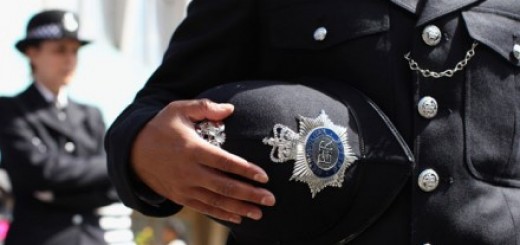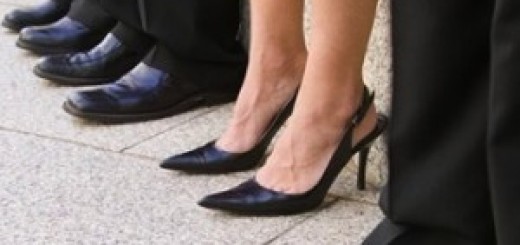Ex chief constable slams sexist culture – Will it make any difference?
Ex chief constable Sue Sim slams sexist culture of the police service and uses the Daily Mail to tell her story. As most of us know, the Daily Mail is no great defender of the UK Police service. It will no doubt relish the opportunity to undermine the service, building on reports of chief officer’s perks. Ms. Sim has also been interviewed on BBCR4s Today Programme. I applaud Ms. Sim for speaking out, but it is all too late for many female officers and police staff who face sexism everyday of their working lives.
In the online article, ‘Greed and sexism at the heart of police: Ex-chief constable’s devastating exposé of ‘corrupt boys’ club’ culture among senior officers’ Sue Sim discusses how she had to keep quiet in the face of a sexist culture throughout her career, even when she was a chief constable. This acquiescence does all women in the workplace a great disservice. What it did do, and still does, is allow some individual women to climb to the top, as long as they do not complain or resist. This is often referred to as a ‘Response to Dominance’. Like many of the models I refer to in my blogs, it is often difficult to find an original source. I came across this model when I became an Equal Opportunities and Community & Race Relations (EO & CRR) trainer in the police service in the mid 1990s. Even in those days we wanted officers to understand that they did not have to put up with certain cultural practises. Unfortunately, once officers left training and even within some training environments, the reality was very different. There are three ways in which people tend to respond to a dominant culture in the workplace;
Withdrawal – This covers a wide range of how people react, from not meeting up with colleagues, keeping to yourself, right through to leaving an organisation or even as a last resort, committing suicide.
Acquiescence – Not saying anything when you or others are abused or bullied, going along with the behaviour and even taking part in it, by changing yourself to fit in and be accepted. Leading on from this can be pro-sexism.
Resistance – Refusing to accept the behaviour and fighting back. This could be challenging colleagues when they make comments or behave inappropriately, forming support groups, raising grievances, or making formal complaints, taking employers to tribunal or writing blogs and articles.
I have also come across a couple of blogs by Breathe, relating to ‘responses to dominance’ that are worth a read. The blogs highlight the relationship to another model, known as the ‘Conflict Continuum’ and Allport’s Scale of prejudice and discrimination. The latter, I have described in a previous blog. The conflict continuum refers to how people deal with conflict; ignore, diffuse or resist. Dependent on the nature of the conflict and your position, people may choose different options. What is different in this model is that if you choose to resist then you can do so in two ways, dependent on your level of authority. Ideally people should negotiate a way through conflict. In this way people can be heard and come to an outcome which is a ‘win-win’. This is likely to result in buy-in from both parties. The other way is through power. If you are in a position of authority, you can tell people what is going to happen. This is a ‘win-lose’, but sometimes it has to be that way. I have used both methods with success and failure. In operational situations, I have ordered people to take certain actions. They did not agree, but I had the bigger picture in mind and took the responsibility. That is sometimes the nature of policing, non-negotiable.
It appears that despite Sue Sim being a chief constable, she had little power to change the culture. In the police service, as in business and society as a whole, men are the dominant culture. Women’s voices struggle to be heard, or when they are, they are often ridiculed. I have already noticed on Twitter today that Inspector Gadget @InspGadgetBlogs, who I follow, has used the phrase, ‘Hell hath no fury etc.’ and stated, ‘Police are so sexist, she made it to chief in record time.’ When people speak out they are often dismissed. There is no protection from the old boys network. It is part of our culture and has been for millennia. Sue Sim faced months of allegations relating to bullying. Would this have happened if she was a man. I have worked with male chief officers that have shouted, sworn and raged. They were referred to as passionate about the job, and yes, sometimes as bullies. The one thing that they were never accused of was having a ‘hissy fit’.
Yes, I am sure Sue Sim made lots of mistakes during her service and has lots of regrets, who hasn’t. There were times when I should have spoken out and did not. There were times when I did and it helped people. There were also times when I spoke and it neither helped me or others. The article ends with a few quotes;
‘Yes I feel let down and angry, but ultimately, I am not doing this for me. It is too late for me.
‘But I feel that I owe it to every junior officer in that force — male and female – to speak out.’
‘Because if they can do this to me, they can do it to anyone.’
Unfortunately, the police service does continue to undermine their own colleagues, both male and female. If the service does not effect cultural change from within, then it will not deliver the appropriate level of service to victims of crime, particularly hate crime, sexual offences and domestic abuse. Working together in an atmosphere that supports each other will result in less sickness, greater wellbeing, improved morale and better service to the public.
The Guardian has published an article today, ‘Northumbria police dismiss ex-chief’s claim of sexist ‘boys’ club’. Investigations have found that the allegations do not hold up. Organisations representing the force signed a joint letter stating that the allegations of sexism outlined in the recent employment tribunal “painted a picture of Northumbria police that they did not recognise”.
I guess that with many of these issues, much is about perspective and what the law can prove or disprove. I am sure that Sue Sim is not just wanting to make life difficult for the service, why should she? She clearly believes in what has happened and what she would like to see changed. I have come across many people who struggle with the macho culture of the service. Male officers have been protected under a misguided belief that the reputation of the force had to be protected. Female officers and police staff do not speak out. They do not feel protected. Police forces always say that they want to reflect the make-up of their communities. If businesses and communities are dominated by a male macho culture and sexist attitudes, the police service has succeeded in its aim.



Recent Comments